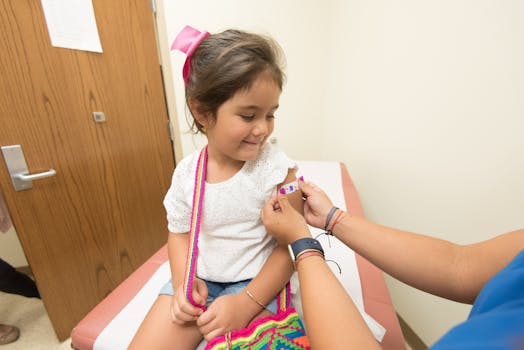happpy.news is an open source project, made with ♥ by reuben armstrong
and powered by this advert ^ from charity.marketing
Kenya has successfully reached 300,000 children with the world's first malaria vaccine. The country is one of three in Africa in which the vaccine, known as RTS,S, is being made available to children up to 2 years old.

In a landmark achievement in the battle against malaria, Kenya has successfully administered the world's first malaria vaccine to 300,000 children. This significant health initiative marks a crucial step in the ongoing fight against malaria, a disease that claims the lives of thousands of African children each year. The vaccine, known as RTS,S, is a groundbreaking development in medical science and public health.
The RTS,S vaccine was developed by GlaxoSmithKline and has undergone extensive trials to prove its efficacy. According to the World Health Organization (WHO), malaria remains one of the leading causes of illness and death among children under five in sub-Saharan Africa. This vaccine offers a promising new tool in the fight against this preventable disease. By targeting the malaria parasite at an early stage, RTS,S aims to significantly reduce the number of severe cases and deaths.
Kenya is one of three African countries, along with Ghana and Malawi, that are participating in this pilot program, which was initiated in 2019. The initiative has been supported by various health organizations, including the WHO and UNICEF, demonstrating a unified global effort to combat malaria. The vaccine is given in a series of four doses, starting at around six months of age, making it accessible to infants and young children who are most vulnerable to the disease.
By reaching 300,000 children, Kenya has shown an impressive commitment to public health and child welfare. The Ministry of Health in Kenya has reported positive feedback from parents and healthcare workers, highlighting the vaccine's potential to protect children and reduce the burden of malaria in communities. As vaccination efforts continue, the hope is to expand coverage further and reach even more children, ensuring that they are protected from this deadly disease.
The introduction of the RTS,S vaccine is seen as a game-changer in public health strategies across Africa. With malaria being endemic in many regions, this vaccine provides a vital additional layer of protection. It complements existing prevention measures, such as insecticide-treated bed nets and antimalarial medications, creating a multifaceted approach to malaria control.
Moreover, the success seen in Kenya could serve as a model for other countries facing similar challenges. As more data emerges from the vaccination campaigns, it will be essential to assess the vaccine's long-term effectiveness and adapt strategies accordingly. The potential for RTS,S to be integrated into routine childhood immunization programs could further enhance its impact.
Looking ahead, the rollout of the RTS,S vaccine in Kenya is a hopeful sign that progress is being made in the fight against one of the world's oldest diseases. The commitment to vaccinating children not only protects individual health but also strengthens community resilience against malaria. As Kenya continues to lead the way in this effort, the world watches with optimism that this could pave the way for a future where malaria is no longer a leading cause of child mortality in Africa.
In conclusion, Kenya's achievement of vaccinating 300,000 children marks a significant milestone in the global fight against malaria. It demonstrates what is possible when countries prioritize health and collaborate on innovative solutions. With continued efforts and support, there is hope for a malaria-free future for generations to come.
Source: BBC News